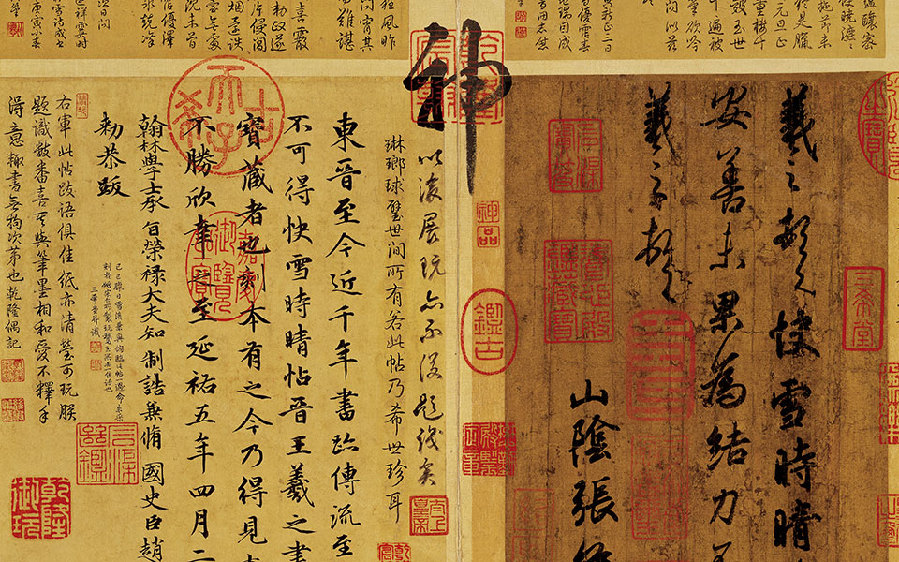In China calligraphy occupies a distinguished position in traditionalart. Not only as a means of communication, but also as a way of expressing one's inner world in an aesthetic sense. It is said that calligraphy, like a mirror, is a silent reflection of the soul.
The ancient Chinese paid great attention to calligraphy. Children of high officials had to learn and try to write a good hand. Even emperors themselves were good at calligraphy.
Today, although various modern ways have been substituted for the original calligraphy, some people still practice the ancient form untiringly. During the traditional festivals, propitious couplets are always indispensable decorations, each written in a beautifulstyle.
The following are ten remarkable works by Chinese master calligraphers from the past. Let's feel the astounding beauty of the art.
Top 1:San Xi Bao Tie
San Xi Bao TieincludesKuai Xue Shi Qing Tieby Wang Xizhi,Zhong Qiu Tieby Wang Xianzhi, andBo Yuan Tieby Wang Xun.
These three are the earliest authentic works of Chinese calligraphy that have been discovered so far and they are kept respectively in thePalace museums inBeijingand Taipei, ranking at the top of the 10 national treasures. In 1764, Emperor Qianlong stored the three works of calligraphy in San Xi Hall.
Kuai Xue Shi Qing Tieby Wang Xizhi

|
|
Kuai Xue Shi Qing Tieby Wang Xizhi.(part) [Photo/yueyaa.com]
|
This is the only piece of Wang Xizhi's original works that still remains today. It is and is 23 x 14.8cm, containing four lines of twenty-eight words. It is a family letter illustrating Wang's exhilaration on a clear day after a snowfall and his greeting to family members. Emperor Qianlong cherished this piece of work so much that he asked people to engrave the whole passage onto stone. Now it is in the collection of the Taipei Palace Museum.
We Recommend:
